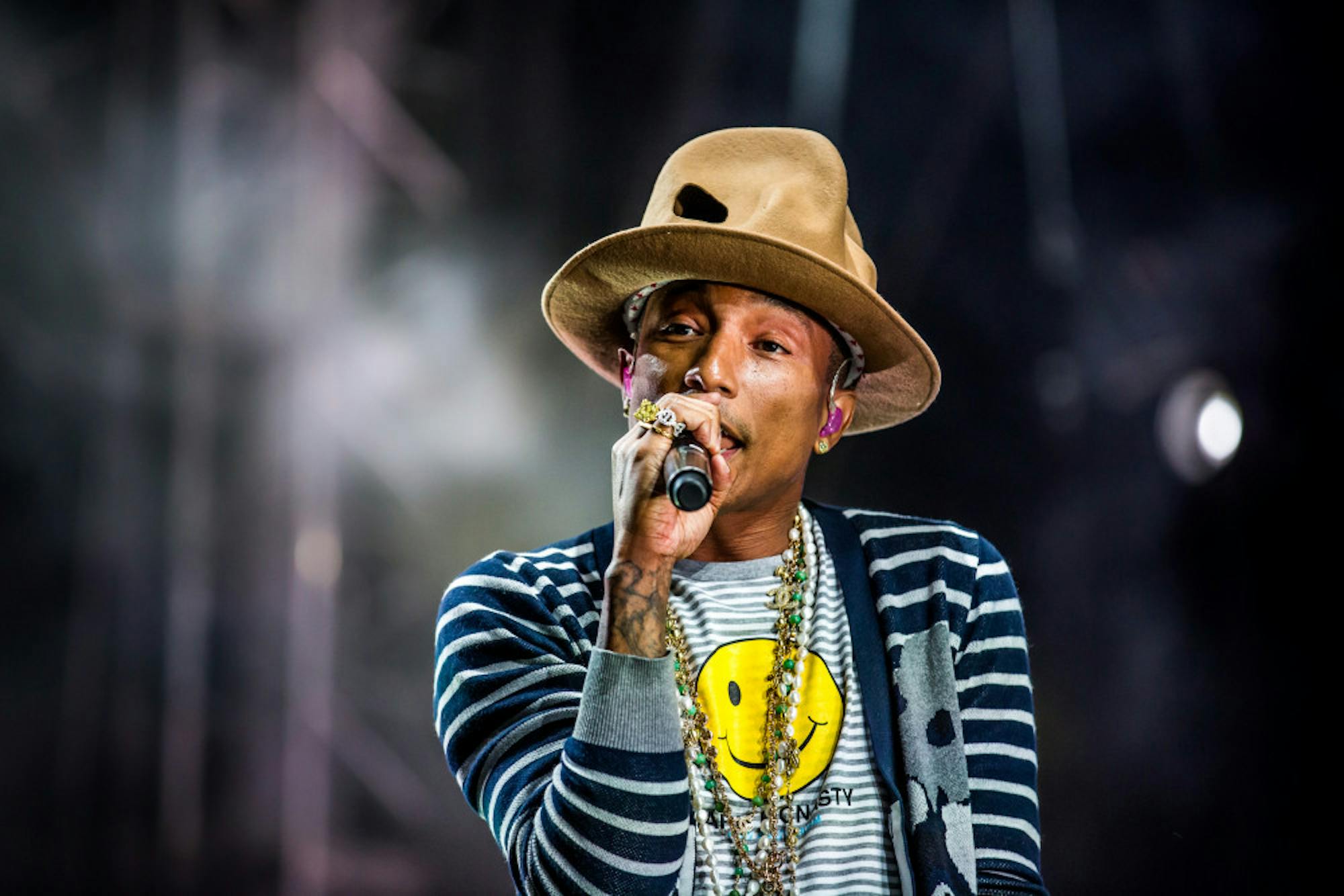It’s that time of year again, when holiday songs melt away into winter’s dance-like-it’s-summer hits. Those who take comfort in this fluffy predictability will be happy to mark their calendars for Feb. 8, the air date of the 57th Grammy awards. Say what you will about "Music’s Biggest Night" – bewildering, out-of-touch, a bit self-congratulatory – but at least it’s consistent. This year’s nominations somehow manage to be equal parts bizarre and ho-hum, a growing trend as The National Association of Recording Arts and Sciences milks its annual PR-crazed cash cow.
First, there’s the domination problem. It’s two-fold: All of the nominees for the four major awards (Record of the Year, Album of the Year, Song of the Year and Best New Artist) are picked straight out of an ever-shrinking stockpile of pop radio repeats. And all of them will be gobbling up gramophones left and right, since they’re each up for awards in at least a couple of categories.
Meghan Trainor, Sia, Taylor Swift, Iggy Azalea and Pharrell span most of these categories. Hitmaker Max Martin, as always, has his fingerprints all over the place – “Bang Bang” (2014), “Problem” (2014), “Dark Horse” (2013) and “Shake It Off” (2014) to name a few. Sam Smith will be taking over for Adele in 2015 as the white, British, pseudo-soul singer with six nominations.
These stars, however talented and deserving, form annual conglomerations that edge out the “little” guys – even those little guys who are top sellers. The result is some very egregious snubbing. Hozier has but one nomination (“Take Me to Church” (2013) for Song of the Year) off an album with nine songs on the Billboard Hot Rock chart. Innovative prog artist St. Vincent enjoyed a similar fate by only earning a nomination for "Best Alternative Album" for "St. Vincent" (2014). Rising names in rap, hip-hop and EDM received their usual measly crumb of the Grammy pie. And bloggers across the nation cringed at the lack of love for FKA Twigs, whose forward-thinking brand of techno/R&B topped pretty much every “Best of 2014” list but didn’t fit neatly into any of the Association’s categories, failing to pick up even a single Grammy nomination.
The choices are a lot less bewildering when you turn the election system over and check out its seamy underbelly: It’s filled with hunger for numbers. The voting process is weirdly complex for a system that seems to blindly pluck winners from the summer’s Top Hits. There’s an entire secret committee (names not published) whose raison d’être is cranking up Nielsen ratings by sifting through the nominations and weeding out the less popular. Each of the major categories is fine-tuned to minimize risk.
This explains why “Anaconda” is up for Best Rap Song and “Bangerz” is up for Best Pop Vocal Album. It clears up why Shaggy, Sean Paul and James Franco are involved at all. Similar processes choose the bubblegum performers – remember when Bruno Mars and Rihanna were thrown into last year’s Bob Marley tribute?(Bob Marley never won a Grammy in his time, by the way…)
But this doesn’t explain the strangest part of the whole ordeal: categories. The Grammys are notorious for not making any sense in this department. Record of the Year, Song of the Year and Performance of the Year are all basically the same award. Paramore’s “Ain’t It Fun” is in the rock department, but Jack White is in both alternative and rock.Beyonce is both R&B and “Urban Contemporary,” whatever that means. Why are 90 percent of radio genres smushed into one category, while “Best Classical Instrumental Solo” gets its own? What about Best “Historical” or “Surround Sound” Album? What year is this anyway?
To be fair, the Grammys do sometimes pay tribute where tribute is due. They’ve honored some great names in music. The Arctic Monkeys are in the running this year, as is Beck. But it certainly helps artists' chances if they harken back to yesterday’s sounds instead of baffling the Association with their own – see retro acts Bruno Mars, Amy Winehouse and this year’s super-lite version, Meghan Trainor, as evidence. Great as they may be, there’s nothing new there.
All these facts point to the legion of professionals not exactly keeping their ears to the ground for fresh, modern music. Even "Best New Artist" features contenders like Bastille and Haim, whom you probably first heard back when they became popular in 2013. Equally radio-friendly but much more recent starlets, like Tove Lo and Banks, are nowhere to be found.
The Association's goal to honor “overall excellence without regard to album sales” is a bit suspicious when its choices are this similar to the unapologetically poppy Billboard and MTV Music Video Awards. Instead of trying to beat back the commoditization of music, or simply expose people to more of it, it is spoon-feeding viewers a comfortable, recycled production loop. It perpetuates a culture of “Top 20” when it could easily be “Top 200.” Thus, the Grammys once again take home the statuette for Most Baffling and Frustrating Awards Show of the Season.
57th Grammy Awards nominations go for style over substance

Pharrell Williams’ “Girl” (2014), which features last summer’s chart-dominating song “Happy” (2014), is nominated for Album of the Year at this year’s Grammys.





